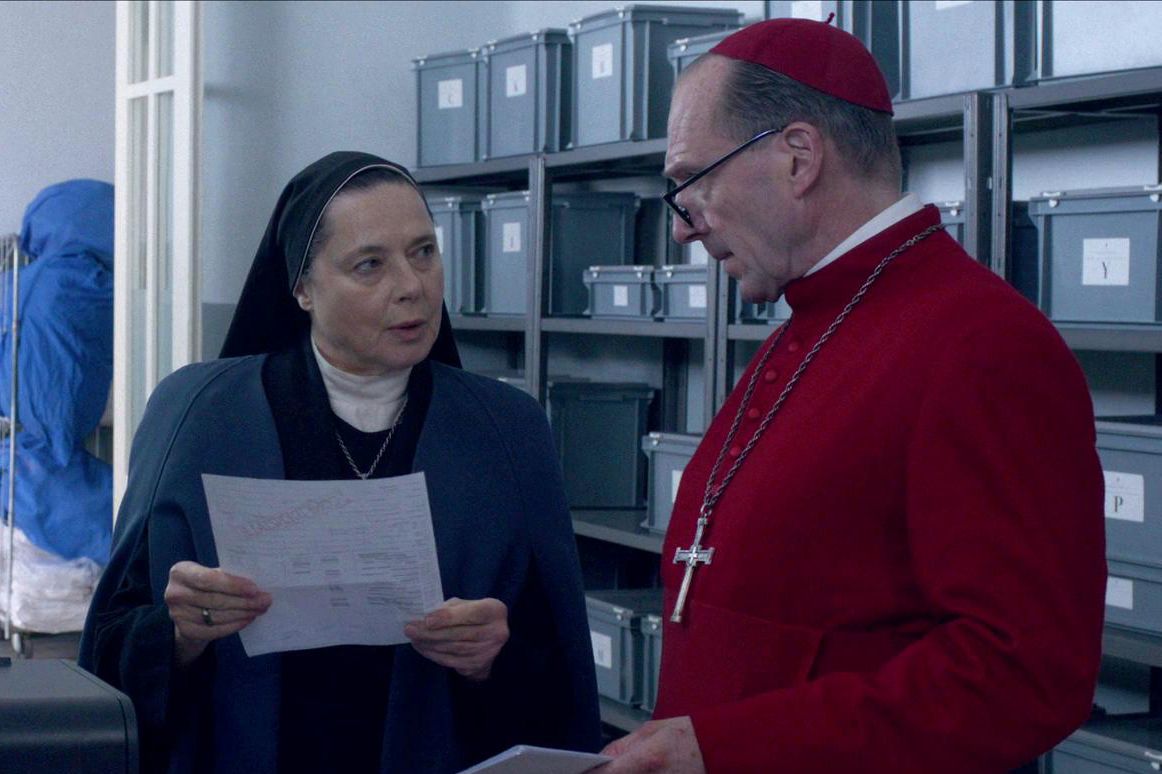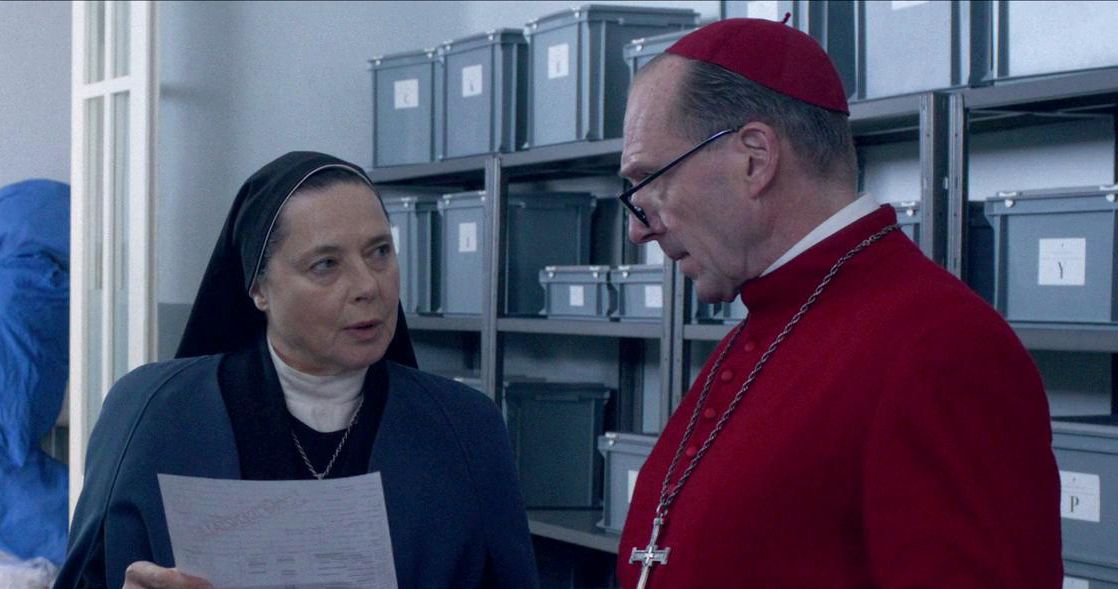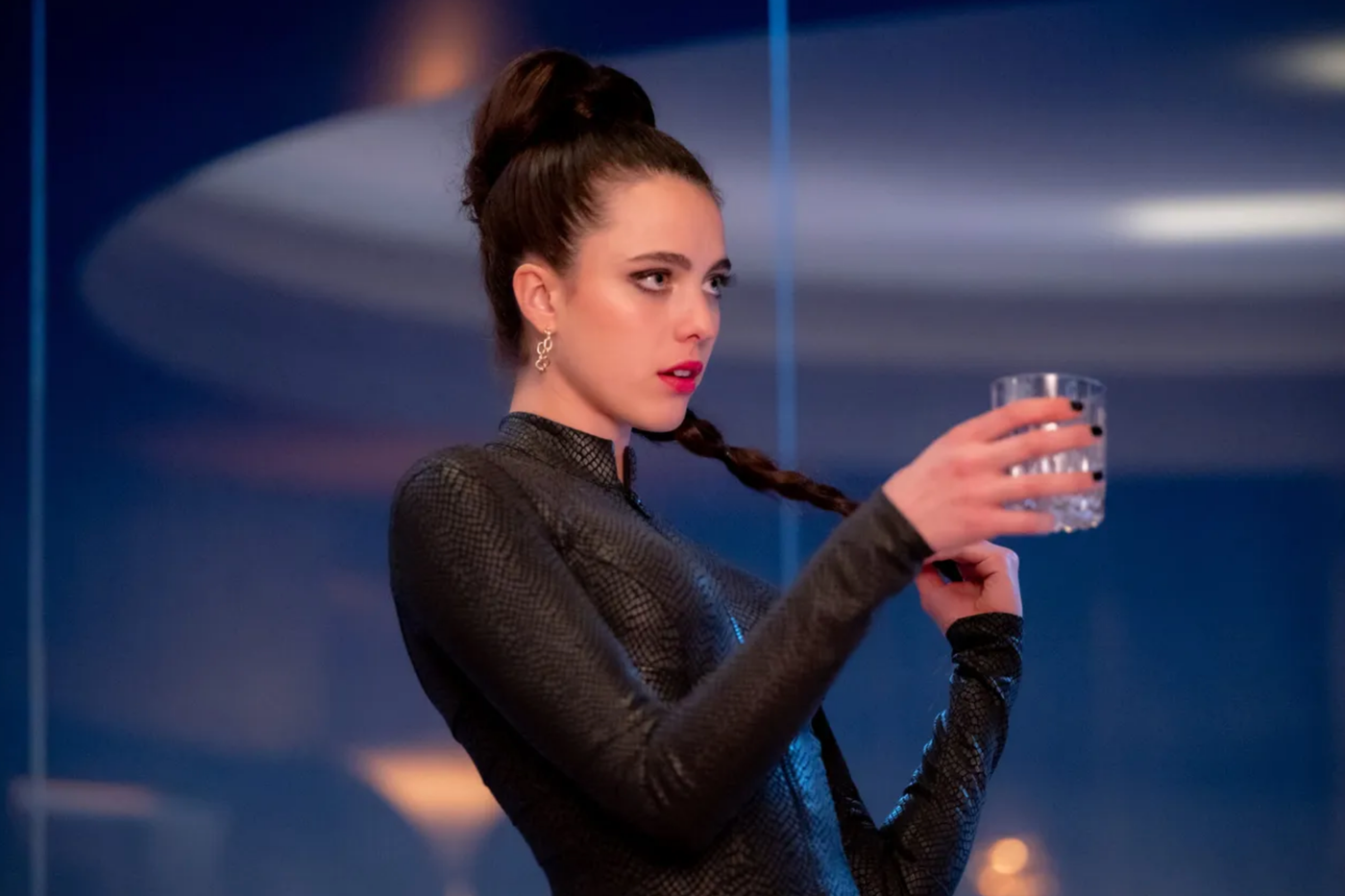
Voting for the 2025 Academy Awards has closed. Here’s how publicists feel about this season of winners and losers.
Photo: Focus Features
If this awards season has felt draining to you, imagine what it’s felt like for the poor Oscar strategists.
Awards strategists are a select breed of film publicists who shepherd Oscar hopefuls through the six grueling months leading up to the Academy Awards, and this season has put them through the wringer. When I called one to ask how the season had gone, she responded with seven uninterrupted seconds of laughter. Thankfully, this week was the pencils-down moment: Once final Oscars voting closed on Tuesday, there was nothing more to be done, save a little last-minute logistical work for this weekend’s Independent Spirit and SAG Awards. Now that they all had a lot more free time, I thought it would be the perfect opportunity to speak to a handful of strategists to get their not-quite-postmortem views on how the season has shaken out.
All the strategists repped at least one film that wound up getting nominated for Best Picture, but their opinions of the quality of the Oscar field differed. One called 2024 “a very weak year for movies.” Another expressed pride that, generally, the Oscars had done a good job representing the great films of the year. What everyone could agree on was this was an unusually unsettled Oscar race. “Can you remember a season where there’s ever been this much swapping of the No. 1 seat?” one strategist asked me. “The amount of times everyone was so sure about the front-runner, and then it would change in the next couple of days.”
Among those I spoke to, there was some disagreement about who exactly these front-runners were. All thought The Brutalist had always been potent and Anora was currently in the lead. Some believed in Conclave — “It’s a satisfying movie for grown-ups” — while others felt it was perhaps too British. Around January’s nominations, one had been sure A Complete Unknown was going to take it: “It really felt like it was coming on very strong, but then it didn’t.” Despite pundits hyping Emilia Pérez’s 13 nominations, two strategists who did not work on the musical were bearish about its chances even before Karla Sofía Gascón imploded. “There’s a lot of misogyny and all that stuff” within the Academy, one said. “There’s probably still a lot of people who are quietly not overly comfortable with transgender issues.” Another mentioned a different kind of bias potentially at play: the grudge theatrical stalwarts still hold against Netflix. The streamer “will need a movie like Oppenheimer in order to win — an undeniable type of movie.”
A wide-open Best Picture race “means that anything is possible,” one said. “You just have to keep fighting. You have to just keep pushing.” Whether for this reason or not, all agree that this was a particularly messy year. “There have always been Oscar scandals,” another strategist noted. “But the tenor of them, and maybe the frequency of them, felt pretty unprecedented to me.” The final few months of the race saw multiple Best Picture hopefuls tarred by one online controversy or another, from The Brutalist’s use of AI to Anora star Mikey Madison forgoing an intimacy coordinator. (“That shit pissed me off,” a female strategist said of the Anora backlash. “If an actress tells you that they want to do something a certain way, it’s their body, their choice.”) Now that the Justin Baldoni–Blake Lively drama has made everyone freshly aware of how easily social-media narratives can be manipulated, some have wondered whether these stories were planted by rival campaigns. But the strategists think, or pray, that wasn’t the case. “I don’t think anybody was playing games,” said one. “I really hope this is not what the job is becoming,” said another. “I think it was just crazy fans online; that’s how the internet is now,” said one more.
Oscar strategists generally abide by the rule that Film Twitter is not the Academy. But consensus is that the Gascón scandal — in which the first out trans actress ever nominated for an Oscar was revealed to have posted hateful tweets against numerous minority groups — did have an effect on the race. “If you were a passionate fan of Emilia Pérez, it’s not going to change your opinion,” said one. “But if anybody had an inclination to vote for the film for political reasons, I don’t think they necessarily would after that.” (Another strategist dissented: “I’ve heard voters say they don’t want to support a precedent where one person can spoil something for an entire movie.”)
It wasn’t just the scandals that made this such a chaotic year. “The fires were part of the mess in a weird way,” a strategist said. “The horrors of the fires, and people having to deal with that and deal with awards campaigning in the same thought process.” The Oscars pushed back its nomination voting deadline twice in response to the L.A. wildfires, and many precursors shuffled their dates as well. “Because of the new calendar, things that used to be really important aren’t so important. Whoever wins at SAG is going to have no effect on who wins” the Oscar, they added.
Most strategists agreed the season’s most unexpected development was the rise of The Substance. “I was surprised, but I’m happy for everyone,” one said. How did a French body-horror satire wind up with five Oscar nominations? Credit Demi Moore, another said. “They had someone who was willing to do as many events as humanly possible, and she had a really amazing story. Plus, the movie has European sensibilities, and it can’t be overstressed — the impact of the international voters right now.”
Another strategist was less surprised. She pointed out that the film was co-produced by Working Title, the venerable British production company: “So, you’re going to get the U.K. people. You have Coralie Fargeat getting French support. You have Demi and all her friends — this circle of actresses who all support each other. There was somebody willing to spend money on the campaign. And the movie spoke to a lot of women, of course. So there were a lot of potential areas of support for that film. Do I think this means that every horror movie under the sun is going to get in? No.”
This strategist was more impressed by another of the year’s horror contenders: “Nosferatu was actually a surprise.” On nomination morning, Robert Eggers’s vampire film was recognized in four below-the-line categories. “It means that people are really looking, and looking beyond the traditional Oscar field. They’re looking at those specific crafts.” Another was even more optimistic: “The Substance and Nosferatu doing as well as they did was a huge step forward for horror.”
At the same time that the Academy has become more international, it’s also become more highbrow, the strategists said. (It is also getting younger, though there’s some disagreement on whether that matters: “It went from having an average age of 65 to, like, 60.”) In a strange way, this has only increased the influence of the Golden Globes in relation to the other precursors: Though the Globes’ voters still have zero overlap with the Oscars’, their tastes are more in line with the Academy’s new members. “Do the guilds really tell the Oscar story? The guilds are so American,” a strategist argued. “I was looking through the list of who actually votes in the Globes. It was a lot of the press that you see in Cannes, Venice, or Berlin. There are some legit smart people in the group.”
Still, that doesn’t mean that every artsy title in the race had an easy road. Take it from one strategist who worked for a contender that had a polarizing festival debut: “It was the first time in a while where I felt like I had to fight really hard for each and every piece [of press coverage]. I would get emails from the trades saying, ‘This movie isn’t really tracking,’” they said. “There was this huge disconnect. I knew that it wasn’t a softball down the middle for the Academy members, but I knew how much work we were all doing, and how much money the studio was putting into it. It was kind of hard to get people to believe that it was actually a strong contender.” Ultimately, this film got nominated thanks to a small but passionate fan base. The lesson? “You don’t need 10,000 people to put you on their ballot. You only need a few.”
This speaks to the most difficult part of an awards strategist’s job: getting Academy members to actually see their film. “They watch the ones they feel like watching, and then they vote,” said one. That was the hurdle for a film like Sing Sing, two different strategists told me. “Internationally, African American stories have a harder time, and I think Sing Sing was probably less seen internationally than some of the other films,” said one. The campaign “really did not tell much of a story about what that movie was about,” said another, who called Sing Sing one of their favorites of the year. “It’s a really life-affirming movie. A24 did spend some money on it, but the money they spent was all about Colman Domingo.”
These strategists will be the first to admit that they have their own blind spots. If, as seems likely, this season ends with Anora triumphant, a few owned up to having underestimated it. “It just didn’t feel like to me the kind of movie that would win Best Picture,” said one strategist. Only when Sean Baker’s film won DGA and PGA on the same night did they start to believe. “I was honestly surprised, but it was a pleasant surprise,” another said. “One of the things about Anora that’s so wonderful is that it’s a feel-good movie. In a weird way, you feel like there’s a little bit of hope for humanity.”
Photo: MUBI
Now that the Brits have done their bit and added some drama to the final weeks of awards season, it’s time for the actors’ turn.
Academy voters already turned in their ballots, so there’s no chance of Sunday night’s SAG Awards influencing the Oscars. Still, the acting branch remains the Academy’s largest, so there’s a chance the guilds’ picks will reflect Oscar faves. Over the past three seasons, 11 of the 12 individual acting winners at SAG have gone on to repeat the feat with Oscar. (The unlucky one was Lily Gladstone of Killers of the Flower Moon.) Few are predicting any surprises in the supporting races, where Kieran Culkin and Zoe Saldaña appear to have the respective categories on lock, but the lead acting races could be due for a shake-up. Sunday is Timothée Chalamet’s last chance to stop an Adrien Brody sweep, and if Timmy is going to show up at any precursor, it’ll be the guild whose membership includes a bunch of online influencers. BAFTA saw Mikey Madison upset Demi Moore, and repeating the feat at SAG could make the 25-year-old the odds-on favorite for the Oscar. Of course, given how Moore’s role in The Substance should resonate with this body in particular, that’s easier said than done.
There’s more uncertainty around the night’s top award, Best Cast. Not only because there are multiple plausible contenders, but because the value of that win is often only evident in retrospect. For Moonlight, Parasite, and CODA, the Best Cast trophy was the rocket ship that took them all the way to a Best Picture win. For Hidden Figures, Black Panther, and Trial of the Chicago 7, it was just a nice way to hand some flowers to an otherwise unheralded hopeful.
Of the five nominees, two feel like their moment has passed. I can’t see the guild voting for Emilia Pérez at this point, even knowing that Karla Sofía Gascón won’t be in attendance. When A Complete Unknown was riding high off its guild nominations a few weeks back, it briefly seemed like it might be an intriguing dark horse here. But the Bob Dylan biopic has been unable to follow up any of those noms with a major trophy, making me think it’s Timothée or bust for this one.
To my surprise, a lot of smart pundits are predicting Wicked. The logic is sound: Like many past SAG winners, Wicked was a big, mainstream hit released by a major studio, and guild voters liked it enough to nominate Jonathan Bailey in Best Supporting Actor. With a huge, colorful cast as well as a — respectfully — kinda basic vibe, the musical fits SAG’s historic tastes too. If this happens, I’d see it more of a Hidden Figures kind of win rather than a CODA kind of win. On the plus side, it would also make Bowen Yang the first former Vulture recapper to win a SAG Award.
Most intriguing would be Conclave, currently riding high off its BAFTA Best Picture win. The papal drama took Best Ensemble trophies at precursors like Critics Choice and the National Board of Review, and it features the most well-rounded of all the nominated casts, something SAG voters tend to appreciate. If Conclave notches its second big win in the span of a week, that would be the kind of late momentum shift we haven’t seen since, well, Conclave — further grist for Michael Schulman’s theory that every Best Picture campaign this year echoes its movie’s plot. Suddenly, we’d be in for a photo finish between Conclave and Anora in the Best Picture race.
But if you want your Oscar pool to be as low stakes as possible, you should root for Anora to pull through. Despite losing at BAFTA, Sean Baker’s film still leads the field in overall trophy count. (And even BAFTA didn’t go terribly, as Madison got on the board in Best Actress.) One could easily see the guild tipping toward the current Oscar favorite: SAG prefers to hand the Best Cast prize to big, happy families, whether biological or otherwise, and you can’t deny that, by the end of Anora, its goons, gal, and gopnik have come together into something approaching a family unit. Baker’s film has hardly looked like an indestructible front-runner this season, but if Anora adds SAG to its bevy of guild trophies, that’ll pretty much cinch it.
See All


